SEO Insights – October 2020 Report
England is set to go into another month-long lockdown. It’s not the news anyone wanted to hear but things should be very different this time around.
We’re all much better set up for remote working, we know what a lockdown means to our businesses and we are better equipped to get through it. The extension of the furlough scheme until the end of the November is appreciated, particularly for those businesses which will struggle during this time.
We are now approaching the Christmas trading period which is a very critical time for a lot of our clients. We expect that online shopping levels will be the highest ever and general requests for services delivered online will increase again.
Now is the time that we need to keep pushing and work together to extract the most from every website and thrive during this busy trading period. If you would like to discuss strategies for your website over this crucial time then do talk to us. We are, as always, here to help in any way we can.
To make the most of this potentially busy period for businesses online, it is important to understand what has been happening in the world of SEO this past month.
Google Analytics 4
In October Google launched its latest version of Google Analytics which it’s called “Google Analytics 4” or GA4 for short.
GA4 is a very major change in how Google presents and interprets user data. It’s designed to give businesses a much better overall understanding of what users (customers) are doing on their websites. These new insights are designed to help businesses make better and more data-driven marketing decisions.
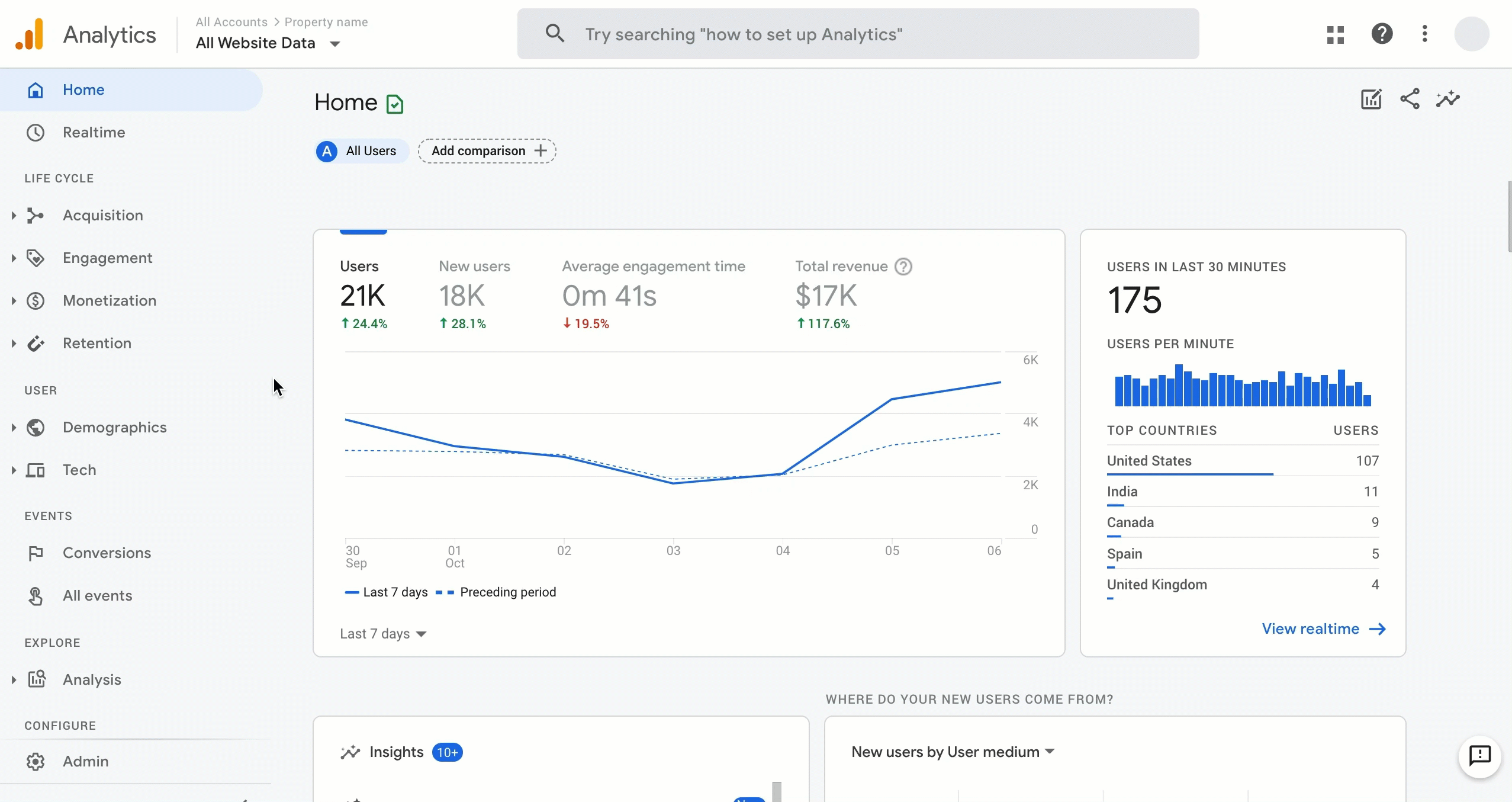
GA4 uses advanced machine learning to analyse trends in the data and provides a greater level of customer-centric measurement as opposed to metrics derived from devices and platforms.
GA4 is now the default option for new analytics properties. We are excited to start digging into this data for our clients so that everyone can start benefiting from the new datasets available.
Microsoft Clarity
Not to be outshone by Google, Microsoft has launched its very own free analytics tool called Microsoft Clarity.
This is a very exciting development in the area of website analytics as Clarity introduces new features not available within Google Analytics.
Clarity is designed to be easy to use and easy on the website, meaning that it has a minimal impact on page load times.
It comes with in-built heatmap and click-tracking functionality to enable you to see what users are doing on each page of your website. It also records user sessions so that you can view what specific users are doing and how they navigate the website. These sorts of insights are normally only available through third-party tools such as Hotjar and Crazyegg.
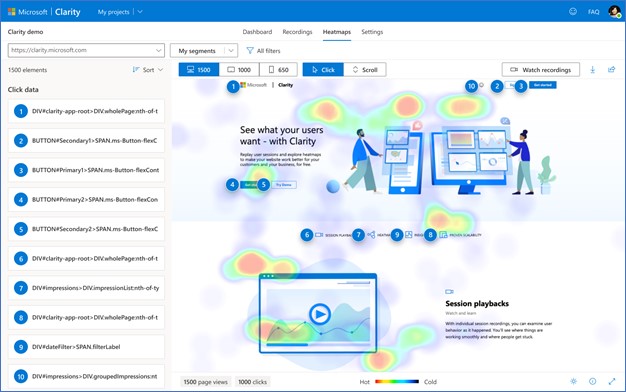
With the recordings you can filter them to view some interesting new metrics such as “rage clicks”, “dead clicks” and “confused scrolling”:
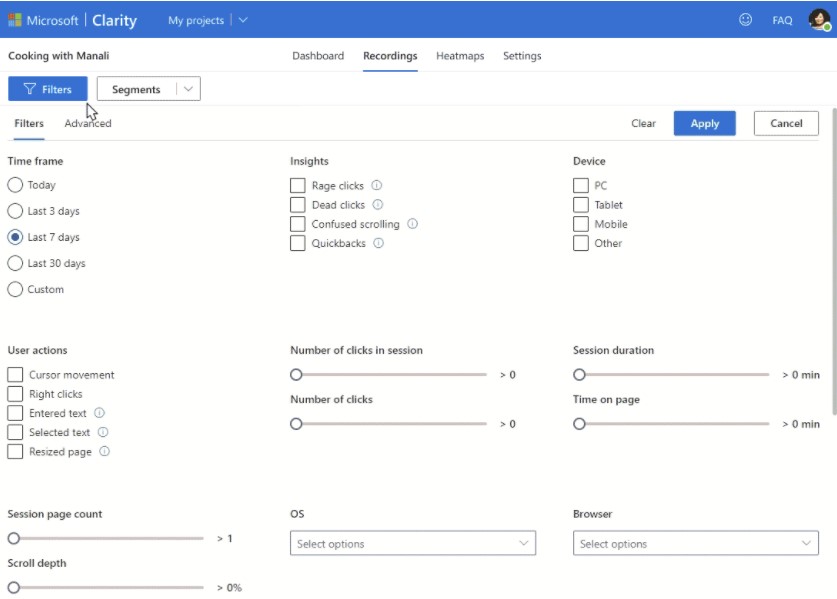
“Rage clicks” are a behavioural pattern where a user clicks several times on a portion of your page that they think should link somewhere, but which doesn’t. This can be a good indicator of non-intuitive portions of your page or help you identify page elements which aren’t working how they should.
We’re excited to start testing and experimenting with Clarity and will be looking to introduce it across all client websites along with the new GA4.
Request Indexing Feature Disabled
The handy little “Request indexing” feature in Google Search Console has been temporarily disabled. This is quite unfortunate is it was a great way to get updated pages indexed very quickly and to immediately test the effects of on-page changes.
Google notified this on Twitter:
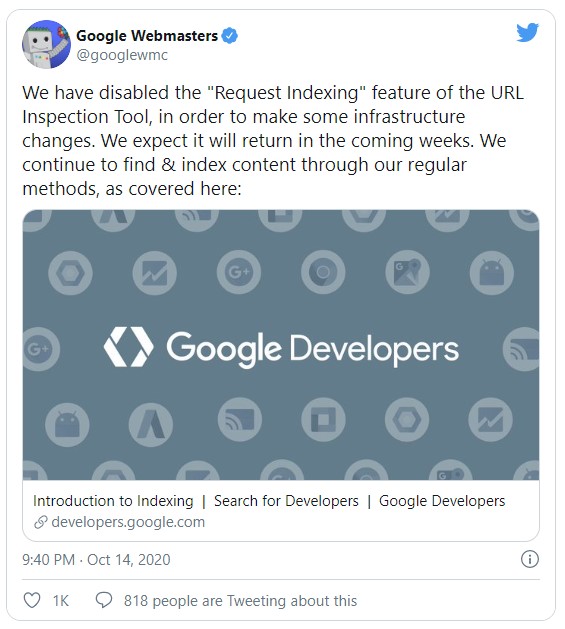
It doesn’t make sense to disable it like this. We can assume that they realised that it was a great way for SEOs to use to it to reverse-engineer elements of the Google ranking algorithm and have suspended it accordingly.
We’ll need to wait and see how it returns but we hope it returns soon!
Passage Indexing
Google released details of how it’s using AI to make search better and in the announcement, it mentioned that it can now index passages from pages as well as entire pages themselves.
It’s not quite that passages are indexed as separate items, it’s just that it can isolate a passage on its own regardless of the content on the rest of the page.
This helps Google to surface information for complex queries that previously would not be ranked because of the influence of the page as a whole.
According to Google, this will impact 7% of queries. This is just for English queries at the moment but will be rolled out to all languages globally. Here is an example of this new technology in action:
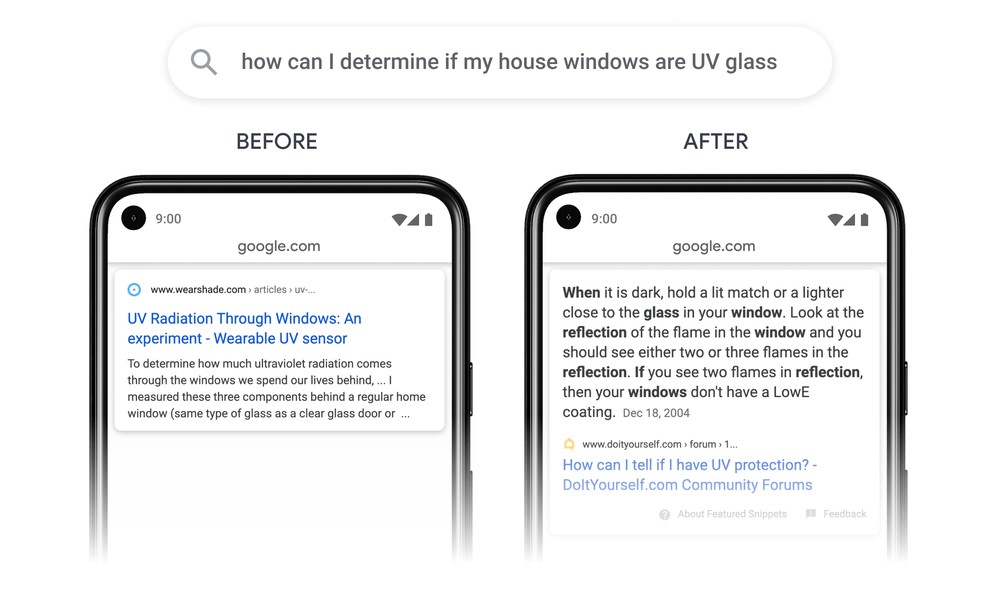
At Artemis, we stay ahead of changes in SEO, Google and digital marketing tools to ensure our clients are not only up-to-date but ahead of the game. If you are interested in having us work on the digital marketing for your business, get in contact with us today.
